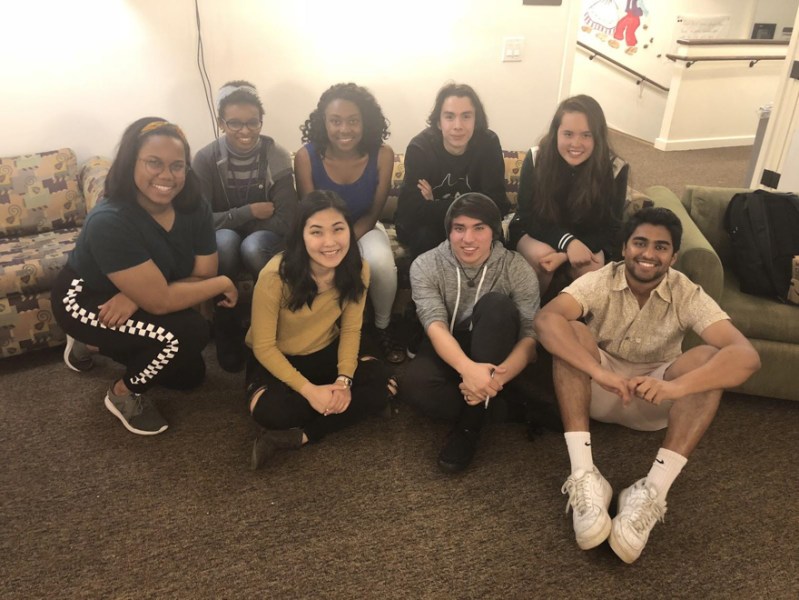Through discussions, research and off-campus activism, Student Alliance for Justice in Education (SAJE) aims to cultivate discussion and catalyze change centered around educational reform on campus and beyond.
According to community outreach coordinator Manami Suenaga ’21, SAJE is focused on ensuring that students are aware of how they are taught and their role in the education process by empowering groups that are marginalized in educational settings.
A central focus of the club is the notion of decoloniality, which refers to the process of analyzing the ways through which education and accepted ideas reflect remnants of Western colonial thought and challenge the power structures and institutions of the modern world which have been shaped by colonialism. It entails disrupting the dominance of Western schools of knowledge.
According to incoming club president Chris Koenig ’19, existing problems within the education system are structural and multi-faceted.
“It doesn’t begin at any specific point but has to be attacked on different fronts at the same time,” Koenig said.
For example, Koenig mentioned the Who’s Teaching Us movement as one perspective from which to address educational issues. The movement seeks to evaluate the process through which Stanford recruits its professors with consideration of factors such as race and personal background. Koenig believes that such a campaign will be helpful in recruiting professors who can empathize with the experiences of minority students.
In January, the club hosted a three-day event called “Power TranSFER: Healing, Hope, & Education.” The event focused on helping marginalized students as well as scholars reclaim power in academic contexts by considering how to validate knowledge created by marginalized community members. Targeted at both the graduate and undergraduate community, the program consisted of a research component, an open mic night and a discussion panel.
The open mic took place in El Centro Latino y Chicano. According to Suenaga, students told their stories and experiences in the classroom, such as whether a professor had asked them to speak on behalf of their race, or when a professor did not seem to understand the difficulties of being a first-generation college student. Suenaga emphasized that validating the experiences of students from marginalized groups and supporting them in changing systemic inequities is an important step for all students to take.
The event also included a panel discussion, including University of California Santa Cruz philosophy of education professor Ronald David Glass, who provided context for how education-related activism has progressed over the years, and East Palo Alto Stanford Academy (EPASA) director Priscila Garcia, who facilitates partnerships between local middle schoolers and Stanford students through Stanford’s Haas Center for Public Service, among others.
According to Koenig, SAJE’s incoming president, the event included a workshop on the relationship between research and decoloniality done in coordination with Green Library.
“Thinking about how we can leverage the people and resources that are already here and share knowledge in new ways was really exciting,” Koenig said.
Phillips said that, in conceptualizing and planning the event, the club drew inspiration from Latin American thought movements centered on the ways in which colonial ideology is embedded in the way that we learn.
According to Koenig, teaching methodology is another important factor in the quality of education that students receive. He said that the classroom structure, tradition and legacy have impacts both in the classroom and in research since they affect the type of knowledge that is generated and disseminated. The club aims to shape and advocate for ways to address these issues, as well as contribute to the efforts of others with the same aim.
The club has also been involved in activism off campus. Two years ago, the club supported members of the Buena Vista community when families were threatened with eviction by rallying Stanford students to attend council meetings and to make calls to representatives.
“Education doesn’t exist in a vacuum … there are all of these other factors that affect the type of education that is available to people, and housing is a big factor,” said outgoing club president Nicole Phillips ’18. “For me as a Stanford student, it’s about figuring out ways to correct things or to give power back.”
Building on the existing foundation of the club and engaging in more outreach with the local community and other clubs at Stanford are primary goals for the club in the years to come.
“It just feels so nice to be in a group of people who care about you and are very loving and approachable, but also want institutional change and are … determined to make it happen,” Suenaga said.
Contact Ruth-Ann Armstrong at ruthanna ‘at’ stanford.edu.
